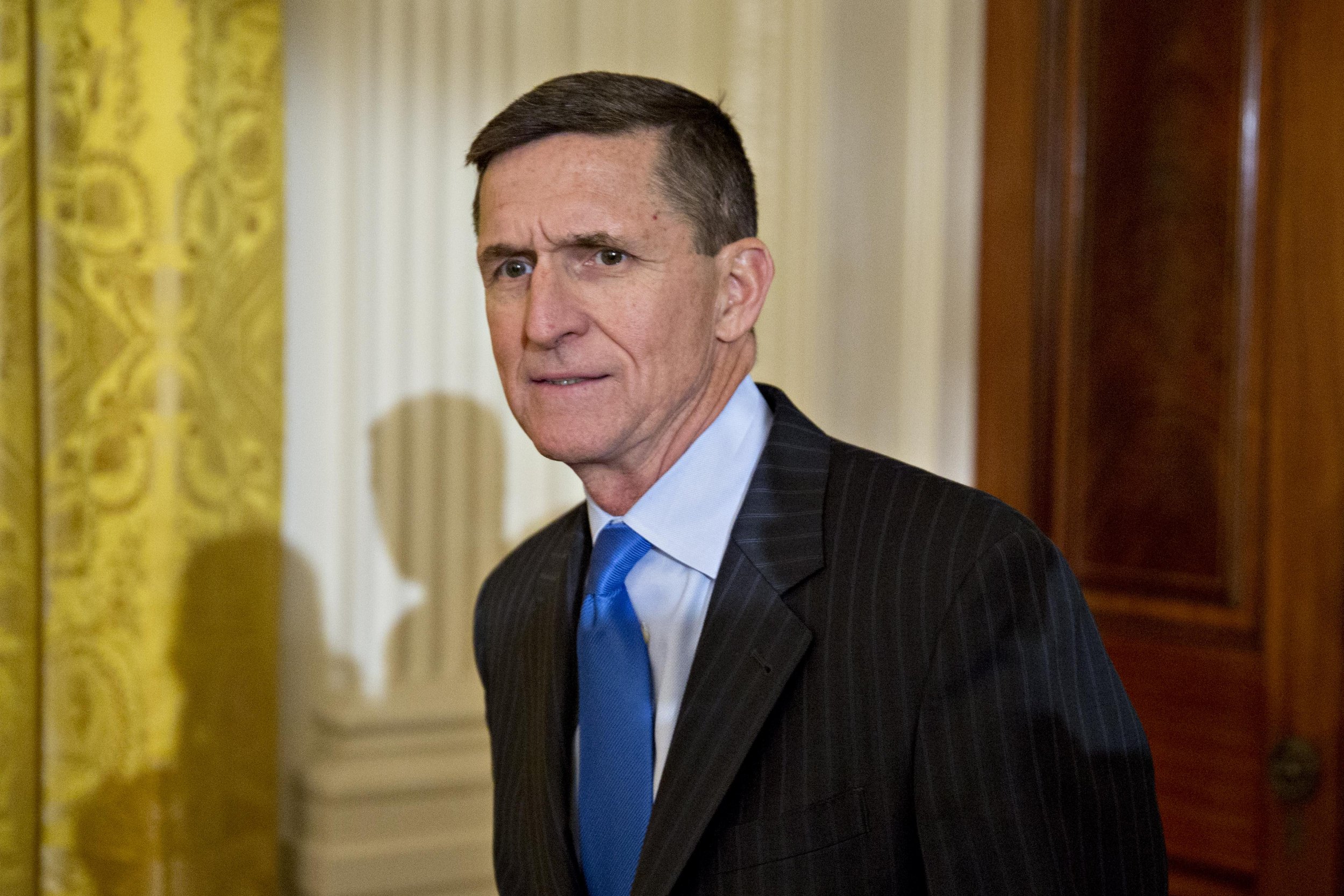
This article first appeared on the Just Security site.
The Trump administration continues to change its story on when and how many times Lieutenant General Michael Flynn, President Donald Trump's national security adviser, spoke to Russian Ambassador Sergey Kislyak on the phone December 29, the same day the Obama administration announced new sanctions against Russia and kicked out 35 Russian officials in response to Russian hacking.
Statements made by White House press secretary Sean Spicer at Monday's press conference conflict with statements made earlier by the Trump team with regard to Flynn's phone calls.
The timeline and the explanation for these calls are important because they're part of a broader, months-long, multi-agency investigation into Russia's interference in the U.S. election and any possible contacts the Russian government might have had with the Trump campaign.
The conflicting stories raise serious questions: Who is telling the truth? And why can't the Trump administration provide the public a consistent answer on this?
The Washington Post's David Ignatius reported January 12 that Flynn "phoned Russian Ambassador Sergey Kislyak several times on December 29." His source was "a senior U.S. government official."
Reuters then confirmed the Ignatius report, noting that Flynn and Kislyak held five calls that day, according to "three sources familiar with the matter." The calls took place "between the time the Russian embassy was told about U.S. sanctions and the announcement by Russian President Vladimir Putin that he had decided against reprisals," the report said.
The Wall Street Journal also reported that there was "a series of telephone calls Mr. Flynn made to Sergey Kislyak, the Russian ambassador to the U.S., on December 29," and that officials have "examined earlier conversations between Mr. Flynn and Russian figures."
And on Monday, CNN reported the December 29 calls "were captured by routine U.S. eavesdropping targeting the Russian diplomats."
Related: Michael Rubin: General Flynn Must Explain Himself
At his Monday press briefing, Spicer offered a version of events that's different than what news organizations have reported, but it's also different than what the Trump team has previously said about these calls.
There's been one call—I talked to General Flynn about this again last night—there's been one call that talks about four subjects.
One was the loss of life that occurred in the plane crash that took their military choir. Two was Christmas and holiday greetings. Three was to talk about a conference in Syria on ISIS. And four was to talk about after the inauguration setting up a call between President Putin and President Trump.
I don't believe that that has been set up yet, because the call was to say, "After…"
I'm sorry, two days ago, they did follow up about how to facilitate that call. So there have been a total of two calls with the ambassador and General Flynn, and the second call came, I think, about three days ago that was to say: Once he gets into office, can we set up that call?
It hasn't, to my knowledge, occurred yet.
Spicer did not give a date for when the first call occurred. He said that when he asked Flynn if he had any conversations with Russian officials other than the ambassador, the answer was no.
Spicer's new accounting of the calls and what was discussed is a combination of previous explanations. According to Fox News, one transition team official acknowledged Flynn had a call on December 29 with Kislyak but said the conversation was about logistics for a later call between Putin and Trump.
In a January 13 update to his column, Ignatius wrote that a Trump official told him multiple calls happened before the sanctions were announced. The Trump official also told Ignatius that the "initial call was to express condolences to Kislyak after the terrorist killing of the Russian ambassador to Ankara December 19."
Ignatius reported that the Trump official told him Flynn "made a second call December 28 to express condolences for the shoot-down of a Russian plane carrying a choir to Syria. In that second call, Flynn also discussed plans for a Trump-Putin conversation sometime after the inauguration.
"In addition, a second Trump official said the December 28 call included an invitation from Kislyak for a Trump administration official to visit Kazakhstan for a conference in late January."
On January 13, NBC News reported that Spicer said Flynn first texted Kislyak on December 25 to wish him a merry Christmas. On December 28, Kislyak sent Flynn a text message asking if they could speak by phone, which they did the following day—December 29.
On January 15, Vice President-elect Pence told Fox News, "I talked to General Flynn yesterday, and the conversations that took place at that time were not in any way related to new U.S. sanctions against Russia and the expulsion of diplomats."
Pence did not dispute Fox News's Chris Wallace when he said Flynn "had several conversations with the Russian ambassador."
Finally, CNN reported that "Flynn and Kislyak had talked other times…according to the Trump official CNN spoke to on January 16th."
For more on the Trump administration's conflicting statements on Russia, see Just Security's chart here.
Kate Brannen is a national security reporter and a nonresident senior fellow at the Brent Scowcroft Center on International Security at the Atlantic Council.
Uncommon Knowledge
Newsweek is committed to challenging conventional wisdom and finding connections in the search for common ground.
Newsweek is committed to challenging conventional wisdom and finding connections in the search for common ground.
About the writer
To read how Newsweek uses AI as a newsroom tool, Click here.








